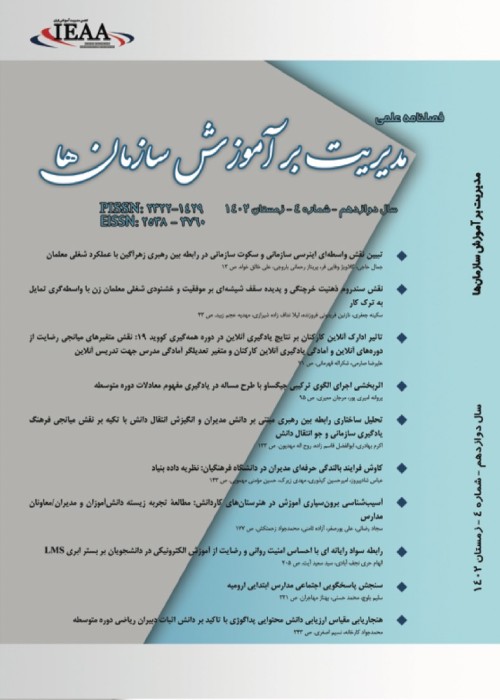Neuro-Cognitive Self-development Model for Leaders: With Emphasis on Academic Leaders
The aim of this study was to provide a neuro-cognitive self-development model of leaders with emphasis on academic leaders. In this research, a qualitative approach and a meta-synthesis method (Sandelowski & Barroso) has been used. The population in this study consists of 1700 scientific-technical documents searched in 4 domestic and 11 foreign scientific databases. Following thematic and content selection from these documents, 63 documents were finally selected and analyzed. In addition, coding method was used to analyze the findings. In order to ensure the dependability of the structured method for recording, writing and interpretation, and to ensure the credibility of the research, the data trinity method has been used. The findings identified five key dimensions. The first dimension is neurological context with specialized, cultural, physical and technological dimensions. The second dimension is neural strategies (EEG, SST, PET, FMRI, TMS, OT, CTS, Neuro feedback) based on neural technologies. The third dimension is the cognitive strategies (cognitive mapping, application of cognitive-behavioral systems, response time analysis, critical thinking, conceptual net-working and semantic expansion) which through using classical cognitive methods, involves in diagnosis and development. The fourth dimension is the neurological competencies (self-awareness, self-control, self-learning, self-regulation, self-motivation, self-adaptation, self-improvement, and neural self-reward) which are expected to grow in the brain. Finally, the fifth dimension is the cognitive competencies (self-knowledge, self-criticism, self-decision making, self-education, self-evaluation, self-perception, self-leadership, and cognitive self-talk) which develop in peoplechr(chr('39')39chr('39'))s mind. Thus, neuro-cognitive competencies will be developed in academic leaders through creating a neuro-cognitive context and then applying neurocognitive strategies, neurocognitive competencies in academic leaders will be developed.
- حق عضویت دریافتی صرف حمایت از نشریات عضو و نگهداری، تکمیل و توسعه مگیران میشود.
- پرداخت حق اشتراک و دانلود مقالات اجازه بازنشر آن در سایر رسانههای چاپی و دیجیتال را به کاربر نمیدهد.



